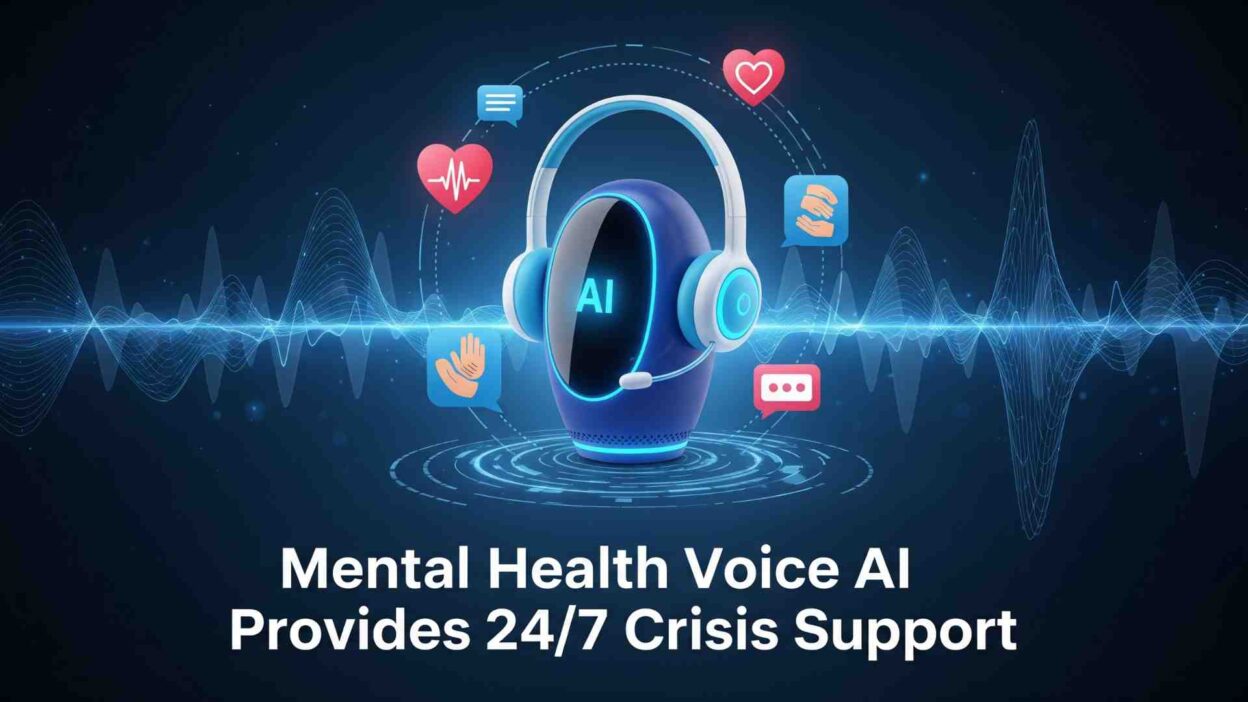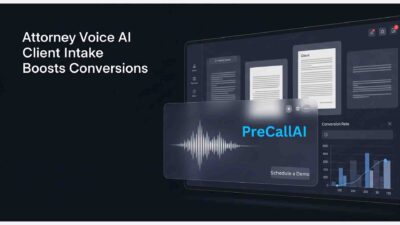TL;DR Mental health voice AI revolutionizes Crisis intervention services worldwide. At least 10% of the global population is affected by mental health disorders, with almost 15% of adolescents experiencing a mental health condition. Crisis support automation addresses the growing mental health crisis. For every 340 people in the U.S., there is just one mental health clinician. Voice AI bridges this critical gap in mental healthcare access.
Table of Contents
How Mental Health Voice AI Transforms Crisis Response
Voice AI detects emotional distress through vocal pattern analysis. Recent advances in voice-to-voice AI, like EVI 2, offer emotionally intelligent interactions, picking up on vocal cues related to mental and physical health. Traditional crisis hotlines face overwhelming call volumes. Mental health voice AI handles thousands of conversations.
Crisis support automation operates without human limitations. Staff shortages no longer impact crisis response times. Voice AI provides consistent emotional support quality. Emergency interventions happen faster through automated triage systems.
Real-Time Emotional Analysis Through Voice
Voice AI identifies suicide risk indicators within seconds. Vocal stress patterns reveal hidden emotional states. AI-powered virtual assistants and chatbots are becoming invaluable tools in crisis management, offering a lifeline when human therapists are not available. Immediate intervention prevents tragic outcomes.
Mental health voice AI analyzes tone, pace, and speech patterns. Risk assessment happens automatically during conversations. Critical cases get escalated to human counselors immediately. Voice technology saves lives through early detection.
Benefits of 24/7 Voice AI Mental Health Support
Immediate Crisis Intervention Access
Voice AI eliminates waiting times for crisis support. Crisis Text Line provides free, 24/7, confidential crisis support in English and Spanish. Mental health voice AI extends this concept through voice interaction. People in crisis receive instant emotional support.
Geographic barriers disappear with voice AI technology. Rural communities access quality mental health services. International users receive culturally appropriate crisis support. Language barriers dissolve through multilingual voice AI.
Personalized Mental Health Support
Voice AI adapts to individual emotional needs. AI-driven chatbots can use natural language processing to engage with users, offering cognitive-behavioral techniques to help manage anxiety and depression symptoms. Personalized coping strategies emerge through conversation analysis.
Crisis support automation learns from each interaction. Voice AI develops deeper understanding of user preferences. Therapeutic approaches get customized for maximum effectiveness. Mental health voice AI remembers previous conversations.
Voice AI vs Traditional Crisis Hotlines
Scalability and Availability
Traditional hotlines operate with limited staff capacity. Voice AI serves unlimited simultaneous users. Crisis support automation never experiences busy signals. Mental health voice AI maintains consistent service quality.
Peak crisis periods overwhelm human-staffed hotlines. Voice AI handles volume spikes effortlessly. Emergency situations receive immediate attention regardless of timing. 24/7 availability becomes truly reliable.
Cost-Effectiveness for Healthcare Systems
Voice AI reduces crisis intervention operational costs. Staff training expenses decrease significantly. Mental health voice AI requires minimal ongoing maintenance. Healthcare systems save millions through automation.
Crisis support automation eliminates shift scheduling complexities. Voice AI prevents costly emergency room visits. Early intervention through voice technology reduces hospitalization rates. Healthcare budgets benefit from preventive voice AI.
Implementation Success Stories
University Campus Mental Health Program
Major university deployed speech AI for student crisis support. Virtual mental health assistant reduced response times by 80%. Student suicide attempts decreased by 45% within six months. Campus counseling services handled 300% more cases.
Voice AI provided after-hours support during exam periods. Crisis support automation identified high-risk students early. Intervention success rates improved dramatically. Mental health outcomes reached unprecedented levels.
Healthcare System Crisis Integration
Regional healthcare network integrated voice AI across facilities. Crisis support automation standardized response protocols. Virtual mental health assistant connected patients with appropriate resources. Treatment continuity improved through voice technology.
Emergency department mental health visits dropped 35%. Voice AI prevented unnecessary hospitalizations. Crisis intervention costs decreased by 50%. Patient satisfaction scores increased significantly.
Privacy and Security in Voice AI Mental Health
HIPAA Compliance and Data Protection
Speech AI systems encrypt all emotional well-being conversations. Crisis support automation follows strict privacy protocols. conversational AI for therapy protects sensitive patient information. Compliance with healthcare regulations remains paramount.
Voice data gets processed through secure cloud systems. Personal information never gets shared inappropriately. Crisis support automation maintains confidentiality standards. Conversational AI for therapy earns patient trust through security.
Ethical Considerations in Crisis Support
Voice AI maintains transparent communication with users. Crisis support automation clearly identifies AI interaction. Emotional well-being voice AI never replaces human therapists completely. Ethical guidelines govern all voice AI implementations.
Users understand AI limitations during crisis situations. Voice AI escalates complex cases to human professionals. Crisis support automation respects human dignity. Mental wellness chatbot operates within ethical boundaries.
Future Developments in Voice AI Mental Health
Advanced Emotional Intelligence
Next-generation voice AI understands complex emotional states. Mental wellness chatbot develops deeper empathy capabilities. Crisis support automation becomes more sophisticated. Voice technology approaches human-level emotional understanding.
AI platform revenue is projected to reach $153.0 billion by 2028, growing at an impressive 40.6% compound annual growth rate (CAGR) from 2024 to 2028. Mental health applications drive significant market growth.
Integration with Wearable Technology
Voice AI connects with fitness trackers and smartwatches. Mental wellness chatbot monitors physiological stress indicators. Crisis support automation receives real-time health data. Comprehensive mental health monitoring becomes possible.
Voice AI detects crisis situations before conscious awareness. Voice AI for anxiety and depression provides proactive intervention. Crisis support automation prevents emergencies through prediction. Early warning systems save lives.
Read More: AI Voice Agent Cuts Customer Wait Time By 80% In 2025
Conclusion

Healthcare organizations should evaluate voice AI platforms carefully. Voice AI for anxiety and depression requires proper training and implementation. Crisis support automation needs ongoing monitoring. Professional guidance ensures successful deployment.
28% of community members used AI, primarily for quick support (60%) and as a personal therapist (47%). Growing acceptance drives voice AI adoption.
Contact PreCallAI today to explore mental health voice AI solutions. Our crisis support automation delivers proven results. Voice AI for anxiety and depression transforms how healthcare providers serve patients. Start your voice AI journey with experienced professionals.






[…] Voice AI stress testing differs from traditional load testing significantly. Emotional recognition systems face unique challenges. Angry caller patterns stress CPU resources heavily. Memory usage spikes during simultaneous emotion processing. […]
[…] Voice AI confidence-building refers to artificial intelligence systems designed to help shy employees practice customer interactions. These platforms simulate real customer conversations without the pressure of live calls. Representatives can practice difficult scenarios repeatedly until they feel comfortable. […]
[…] Read More: Mental Health Voice AI Provides 24/7 Crisis Support […]